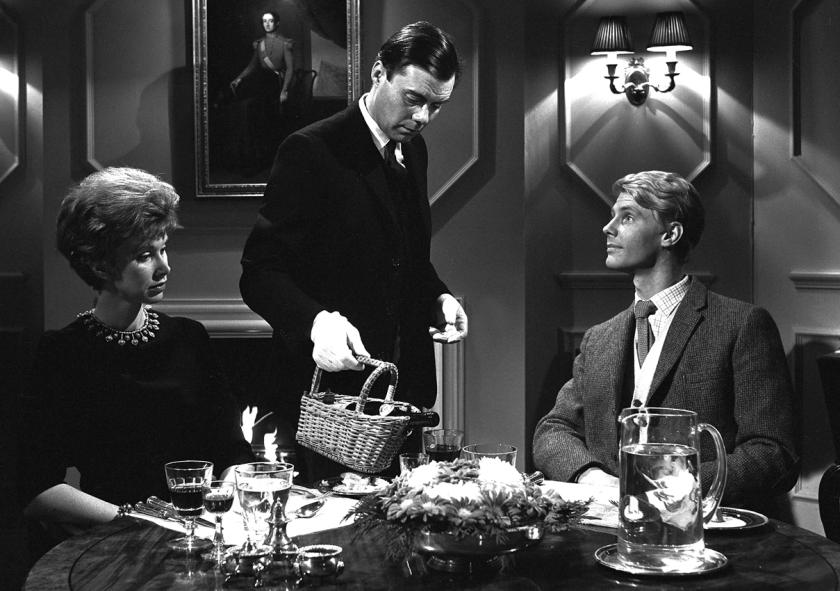These two 1960s movies have more than just their director, Joseph Losey, and their writer, Harold Pinter, in common. They also both star Dirk Bogarde, escaping his matinee idol mould to startling effect, and feature soundtrack composer John Dankworth, whose jazzy scores cleverly veer between generic sexy swagger and disorientating dissonance, as and when appropriate.
Perhaps unsurprisingly, it is the most self-consciously avant-garde of the two films that has dated the most. Accident (1967) is at times stilted and painfully slow. And although it might be argued that the pace is a deliberate attempt to create tension, Pinter’s characteristically protracted yet minimalist dialogue, which was so perfect for the stage, seems at odds with the dynamism inherent in the medium of film. Accident begins with the accident in question (a fatal car crash) and then backtracks to the events leading up to it. But this perfect premise is somewhat squandered by Losey’s need to be strikingly modern. On the other hand, The Servant (1963), works better because its modernist aims feel secondary to its more pedestrian ambitions to be a tense psychological thriller. Only at the very end do things get silly, with the descent into a stiffly choreographed orgy which is unfortunately more comic than it is erotic or threatening.
But don’t let any of this put you off. Impressionistically these two films tell you everything you need to know about the end of post-war austerity and the beginning of the youthful adventure of the 1960s. And one can see a direct line leading from both through Nicolas Roeg’s Performance, Ballard’s/Cronenberg’s Crash and right up to Paul Thomas Anderson’s The Master. You may laugh awkwardly at the casual sexism, coy treatment of homosexuality (after all, it was still a criminal offence), and over-emphasised signifiers of the slow passing of time (dripping taps, ticking clocks) but nevertheless what's on offer here is absolutely essential viewing for anyone interested in the true landmarks of British cinema. Extras include interviews with Losey and Pinter from 1967, as well as analysis from contemporary critics.















Add comment